Sports
Olympic qualification a hurdle for out Tongan swimmer
Amini Fonua lacks perks many swimmers from other countries enjoy
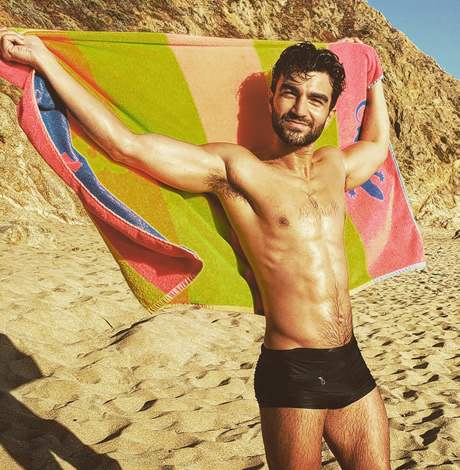
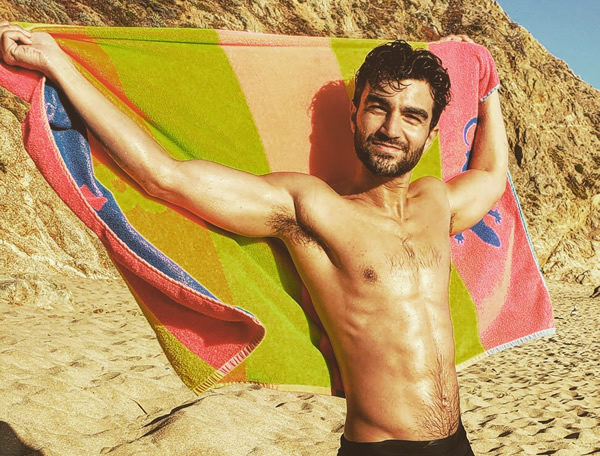
An elite athlete who represents his or her country on the international stage generally receives living expenses and medical insurance funded from a variety of sources.
The athlete may also receive paid travel and accommodation for competitions, high quality racing gear, training equipment, coaching, post-workout recovery treatment and nutritional supplementation.
This week in the Blade’s Game Changers series, we meet an openly gay, two-time Olympic swimmer from Tonga who is funding his own training to qualify for his third Olympics this summer in Tokyo.
Amini Fonua represents a country where homosexuality is illegal and elite athletes do not receive financial support. To cover his expenses, Fonua works as a barista along with side jobs teaching private swimming lessons and mentoring high school athletes hoping to swim in college.
In an effort to minimize his expenses and commit to the training needed to qualify for the Olympics, Fonua recently moved from California to New Jersey. His daily schedule consists of work and traveling to New York City where he trains with the New York Athletic Club.
Fonua grew up in Auckland, New Zealand in a sports-oriented family and was active in rugby, basketball and swimming. By age 14, he turned his full attention to swimming.
“At that age toxic masculinity enters into the equation in most sports. In swimming, everyone is equal in the water,” Fonua says. “I enjoyed the underwater silence of being in the pool.”
He qualified for the Junior Pan Pacs in Hawaii at age 17 and was inspired by the level of competition. Also on hand at the event were college recruiters from American universities.
Fonua was recruited by Texas A&M University and began his collegiate career there in 2009. As a gay man, it wasn’t an obvious choice to enter a conservative institution in a conservative state. He calls it a leap of faith for his sport.
“My freshman year I swam sore and I swam tired. The jump from high school swimming to college swimming was intense and physically demanding,” Fonua says. “Over the long term, my swimming benefitted from the extra muscle I added from two-a-day practices, weight training and dryland.”
While he was at Texas A&M, New Zealand began passing him over for national teams and international travel. His Tongan heritage had been an important part of his upbringing and a family trip to Tonga in 2009 brought a new direction.
“My father had been whispering in my ear, ‘Swim for Tonga,’” Fonua says. “There were no water safety programs or swim lessons being offered at the time in Tonga. The Tonga Swimming Association was established in 2010 and I was cleared to swim for them internationally.”
He became the first Tongan swimmer to win a gold medal in international competition when he won the 50 meter breaststroke at the 2010 Oceania Swimming Championships in Samoa.
Fonua served as Tonga’s flag-bearer in the 2012 Summer Olympics Parade of Nations in London and competed in the 100 meter breaststroke. He was not out publicly at the time.
“It was a very memorable experience as my mom is from England,” Fonua says. “I was so well versed in my Tongan heritage — it was nice to experience my mother’s culture as a family.”
After graduating from Texas A&M in 2013, Fonua came out publicly and returned to New Zealand where he began training with his childhood coach. His first meet back after a break from competing was the 2014 Gay Games in Cleveland where he represented Team New York Aquatics.
“I really missed the sport and found new inspiration at the Gay Games,” Fonua says. “There is a huge community out there that is passionate about gay sports and swimming.”
His path to the 2016 Rio Olympics included a stop at the 2015 Pacific Games in Papua New Guinea where he won gold medals in the 50-, 100- and 200-meter breaststroke events breaking two Games records.
When Fonua arrived at the 2016 Rio Olympics he was one of a handful of out athletes competing.
“Rio was a lot more fun, happy and freeing for me whereas London was shrouded with guilt and shame,” Fonua says. “There were plenty of gay athletes and coaches in Rio, but they were not a loud bunch. Many of them are in situations where they can’t share their sexuality on the world stage.”
He gained international attention in Rio when he publicly criticized a Daily Beast article that outed fellow Olympians, including some from homophobic countries.
“I spoke out against the dangers of outing and published a series of tweets that went viral, followed up by a number of media interviews that helped to get the story retracted, with an apology,” Fonua says. “The International Olympic Committee ultimately deemed the article “unacceptable,” which was actually the first time the IOC had ever acknowledged any LGBTQ presence.”
In his quest for a third Olympics, Fonua says that this time it is with a sense of purpose that includes being an LGBTQ representative. He recently signed on as an athlete ambassador with Athlete Ally, an LGBTQ sports advocacy group.
He kicked off his Tokyo campaign by competing at the International Gay & Lesbian Aquatics World Championships last summer which were held during Stonewall 50: World Pride NYC.
“Having the power of presence, showing up and doing your best are important when you are representing your community,” Fonua says. “There are many members of the LGBTQ community that are out, proud and successful in the workplace. We need more in the sports community.”
Fonua was disappointed with his 100 breaststroke race at the 2016 Rio Olympics. He says his attitude was one of “bubbling resentment” over not being given the tools and access that other athletes received from their governing bodies.
He is not going to let that happen this time around and has adopted the mantra, “We are the hero of our own story.”
“I want to change the narrative on policy, community support and funding in Tonga. For now, I can’t depend on their support and I have to engage whatever resources are available to me,” Fonua says. “No one is going to swoop in and save me and I owe it to myself to have the best lead up to Tokyo. It is my own responsibility.”
Tonga has never censored Fonua and he takes pride in representing the country. He spent a month last September training in Japan and has a few tune-up meets coming up this year on the road to Tokyo. Included will be the 2020 Oceania Championships in Fiji this June where he is a five-time medalist.
To fund his training camps and competitions, Fonua has set up a GoFundMe page. It isn’t something he is happy about, but it is necessary to complete the purpose of this Olympic cycle.
“I want to be a role model for anyone coming to terms with who they are as a person. It’s important to share this journey with the LGBTQ community and show that you can be your authentic self and achieve a lot of success,” Fonua says. “It’s going to be a big grind to get there and I hope that it ends with that one perfect race.”
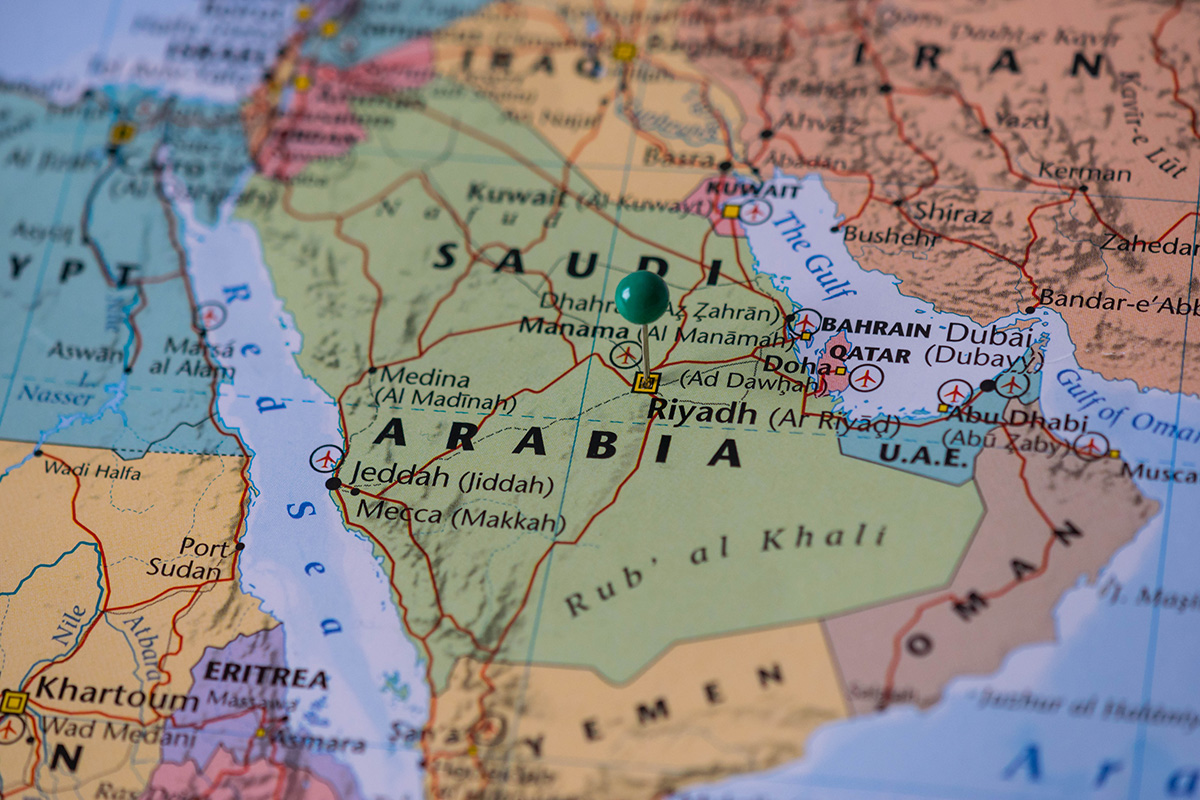
FIFA has announced Saudi Arabia will host the 2034 World Cup, despite concerns over its human rights record that includes the death penalty for homosexuality.
The Associated Press reported FIFA confirmed the decision on Dec. 18. The AP noted Saudi Arabia is the only country that bid to host the 2034 World Cup.
“This is a historic moment for Saudi Arabia and a dream come true for all our 32 million people who simply love the game,” said Sport Minister Prince Abdulaziz bin Turki Al- Faisal, who is also president of the Saudi Olympic and Paralympic Committee, in a statement the Saudi Press Agency posted to its website.
Saudi Arabia is among the handful of countries in which consensual same-sex sexual relations remain punishable by death.
A U.S. intelligence report concluded Saudi Crown Prince Mohammed bin Salman “likely approved” the murder of Jamal Khashoggi, a Washington Post columnist, inside the Saudi Consulate in Istanbul in 2018. A federal judge in 2022 dismissed a lawsuit against Prince Mohammed after the Biden-Harris administration said he was immune to the lawsuit because he is the country’s prime minister.
Human rights activists have also criticized the Saudi government over the treatment of women, migrant workers, and other groups in the country.
“No one should be surprised by this,” Cyd Zeigler, Jr., co-founder of Outsports.com, an LGBTQ sports website, told the Washington Blade in an email after FIFA confirmed Saudi Arabia will host the 2034 World Cup. “FIFA, the International Olympic Committee, and many other world governing bodies routinely turn to authoritarian countries with terrible human-rights records to host major sporting events. There are simply few other countries willing to spend the billions of dollars it takes to build the needed infrastructure.”
Peter Tatchell, a long-time LGBTQ activist from the U.K. who is director of the Peter Tatchell Foundation, in a statement described FIFA’s decision as “a betrayal of the values that football should stand for: Inclusivity, fairness, and respect for human rights.”
“This is not about football; it’s about sportswashing,” said Tatchell. “The Saudi regime is using the World Cup to launder its international image and distract from its brutal abuses. By granting them this platform, FIFA is complicit in whitewashing their crimes.”
Qatar, which borders Saudi Arabia, hosted the 2022 World Cup.
Consensual same-sex sexual relations remain criminalized in Qatar.
“Saudi Arabia was the only country to bid for the 2034 FIFA World Cup,” said Zeigler. “So, until FIFA, the IOC (International Olympic Committee) and other governing bodies ban major human-rights violators from hosting, we’ll continue to see events like this in Saudi Arabia, China, Qatar, and other countries with terrible LGBTQ rights issues.”
The Blade has reached out to FIFA and the Saudi government for comment.
Sports
Controversy grows over member of Calif. university’s women’s volleyball team
Coach suspended, NCAA sued, more rivals forfeit
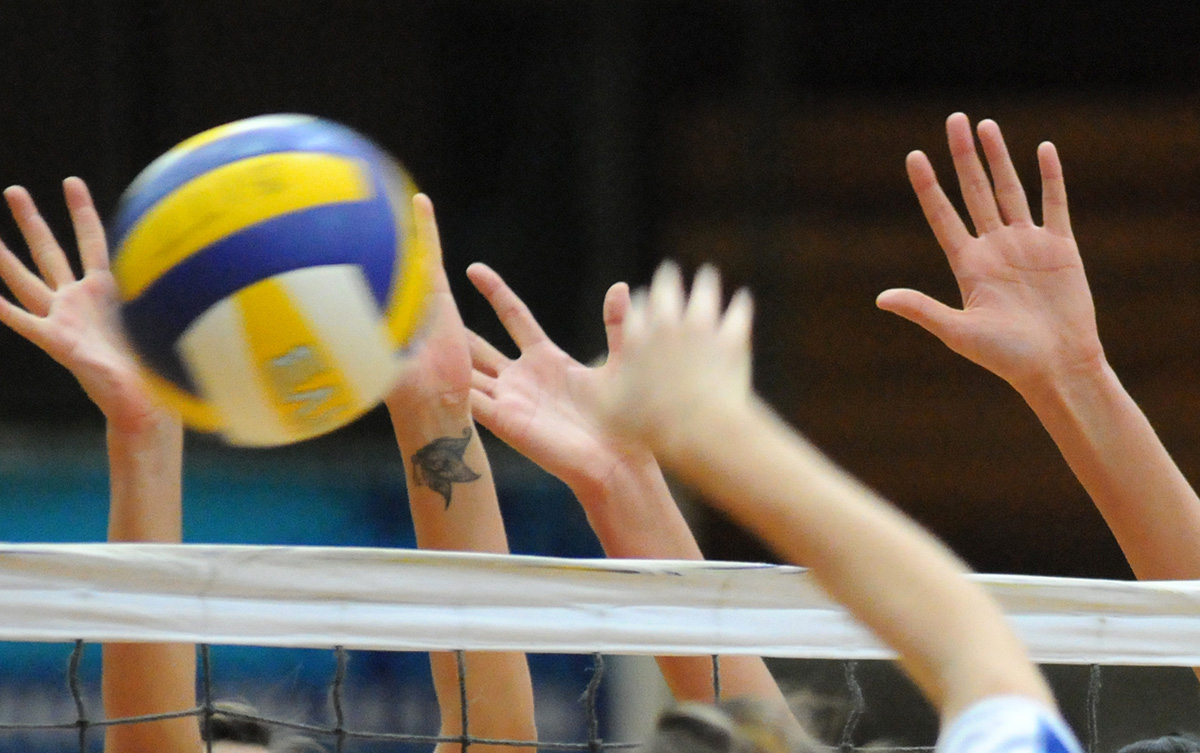
San Jose State University’s women volleyball team has collected yet another W by forfeit — its seventh so far this season — as controversy swirls around one player on its roster. She’s one of the seniors, and she has been dragged in the media by her own co-captain, who outed her as transgender.
The Washington Blade is not naming this student athlete since neither she nor the school have confirmed or even commented on her gender identity.
SJSU visited San Diego last weekend for a match before the Aztecs’ biggest home crowd of the season — including protesters waving “Save Women’s Sports” banners and booing one player on the Spartans team in particular: The woman who is reported to be trans.
Security was tight, with metal detectors and extra guards and police officers present. Video posted to YouTube by a right-wing sports media site — which names the player — shows an angry fan arguing with security about his First Amendment rights.
Video recorded during Nov. 9’s game shows a player for San Diego was injured following a spike by the player rumored to be trans, and had to be helped off the court. However, the video clearly shows that player was injured by landing poorly on one foot, not as a result of the spike.
The Aztecs defeated the Spartans 3-1, but San Jose has still punched its ticket to the conference finals, thanks to its record number of forfeits.
Wyoming was set to visit SJSU Thursday, but for the second time is joining other universities that have forfeited games against the Spartans, all without providing a reason. Boise State announced it will forfeit an upcoming match set for Nov. 21, its second forfeit against SJSU.
In September, the Spartans’ co-captain, senior Brooke Slusser, outed her own teammate, the player at the center of this controversy, in joining a federal lawsuit against the NCAA spearheaded by anti-trans inclusion activist and former college athlete Riley Gaines.
Slusser said in the lawsuit and in subsequent interviews that the player in question shouldn’t be on her team. The suit claims the NCAA’s policy on trans athletes violates Title IX by allowing “men” to compete in women’s sports and use women’s locker rooms where they display “full male genitalia.”
The NCAA policy for trans athletes participating in women’s volleyball aligns with that of USA Volleyball, which requires trans female athletes to suppress their testosterone below 10 nmol/L for a period of one year before competition. That is also how the NCAA determines eligibility. SJSU has stated repeatedly that all its players are eligible.
The lawsuit also asks the NCAA to revoke any titles or records won by trans female athletes in women’s competitions, which seems to be specifically aimed at stripping out trans NCAA champions Lia Thomas and CeCé Telfer of their titles in swimming and track and field, respectively.
Prior to this season, the player rumored to be trans did not attract any attention other than being a successful starter, like Slusser. But now that she is in the media spotlight, Slusser has come forward to tell right wing media, including Megyn Kelly, why she feels another woman two inches taller than she is poses a danger.
“I don’t feel safe,” Slusser said on “The Megyn Kelly Show” last month. “I’ve gone to my coaches and said I refuse to play against [her] … It’s not safe.”
In the video, both Kelly and Slusser refer to the player as “him” and a “man,” and name her.
Now comes another twist: San Jose State University suspended associate head coach Melissa Batie-Smoose with pay, indefinitely, after she filed a Title IX complaint against SJSU. She claims the player Slusser identified as trans conspired with an opponent to help the team lose a match and injure Slusser. Batie-Smoose named the player in question in her complaint and on Sept. 23, joined the same lawsuit that Slusser is now a part of.
“Safety is being taken away from women,” Batie-Smoose told Fox News. “Fair play is taken away from women. We need more and more people to do this and fight this fight because women’s sports, as we know it right now will be forever changed.”
Media reporting on the suspension, including Fox News, continue to name the athlete in question, with some also reporting what they say is the athlete’s birth name.
San Jose State released a statement following the suspension of Batie-Smoose: “The associate head coach of the San Jose State University women’s volleyball team is not with the team at this time, and we will not provide further information on this matter,” the team said.
SJSU Coach Todd Kress told ESPN that reports saying that any member of the Spartans colluded with their opponent are “littered with lies.”
The Spartans are currently among the top six finishers in the Mountain West Conference that will qualify to compete in the conference tournament scheduled for Nov. 27-30.
Sports
University of Nevada forfeits game rather than play possible trans athlete
Women’s volleyball team cites ‘not enough players to compete’
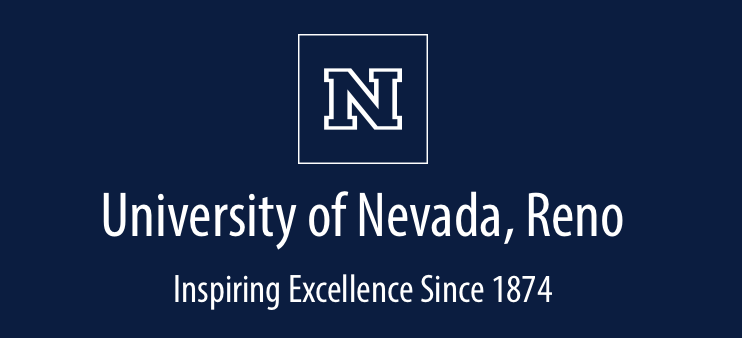
For the fifth time, a women’s volleyball team has chosen to forfeit instead of play against San Jose State University, because of rumors that one of its players is a transgender woman.
The University of Nevada, Reno, officially announced on Friday that it would forfeit Saturday’s game against the SJSU Spartans. This followed an announcement by Wolf Pack players who said they “refuse to participate in any match that advances injustice against female athletes,” without providing further details.
Originally, Nevada’s athletic department had said the program would not back out from the match, citing state equality laws, but also said that no players would be disciplined if they chose to not participate.
“The vast majority of our team decided this is something we wanted to take a stand on,” Nevada team captain Sia Liilii told Fox News. “We didn’t want to play against a male player.”
“In all of our team meetings it just kept coming back to the fact that men do not belong in women’s sports. If you’re born a biological male, you don’t belong in women’s sports. It’s not even about this individual athlete. It’s about fair competition and safety for everyone.”
Outsports and several conservative and right-wing websites have identified the player who is rumored to be trans, but the Washington Blade has opted to not do so since she herself has not come forward to either acknowledge or deny she is trans.
As ESPN reported, Nevada follows Southern Utah, Boise State, Wyoming, and Utah State in canceling games against the Spartans. Boise State, Wyoming, Utah State, and Nevada are all members of the Mountain West Conference, so those contests are considered forfeits and count as valuable wins in the league standings for San Jose State.
Riley Gaines, the anti-trans inclusion activist for the Independent Women’s Forum has joined the chorus in claiming the Spartans’ roster includes a trans woman.
If you're wondering why teams are forfeiting against @SJSU, here's the reason.
Last night another woman was smashed in the face by a kill from a man posing as a woman.
It's unfair, unsafe, and regressive, yet our "leaders" remain silent. pic.twitter.com/OS15AFxQsp
— Riley Gaines (@Riley_Gaines_) October 18, 2024
Despite this, neither San Jose State nor any of the other forfeiting teams have said the university’s women’s volleyball team has a trans player. SJSU issued a statement defending its roster.
“Our athletes all comply with NCAA and Mountain West Conference policies and they are eligible to play under the rules of those organizations. We will continue to take measures to prioritize the health and safety of our students while they pursue their earned opportunities to compete,” the statement read.
The governors of Idaho, Nevada, Utah, and Wyoming — all of whom are members of the Republican Party — have issued public statements supporting the cancellations, claiming it’s in the interest of fairness in women’s sports. This week, Donald Trump, the GOP presidential nominee and former president, spoke at a Fox News televised town hall when asked about trans athletes in women’s sports.
“We’re not going to let it happen,” Trump said. “We stop it, we stop it, we absolutely stop it. We can’t have it. You just ban it. The president bans it. You don’t let it happen. It’s not a big deal.”
-

 State Department5 days ago
State Department5 days agoHIV/AIDS activists protest at State Department, demand full PEPFAR funding restoration
-

 Brazil5 days ago
Brazil5 days agoUS lists transgender Brazilian congresswoman’s gender as ‘male’ on visa
-

 District of Columbia5 days ago
District of Columbia5 days agoCapital Pride wins $900,000 D.C. grant to support WorldPride
-

 Obituary4 days ago
Obituary4 days agoLocal attorney, LGBTQ rights advocate Dale Sanders dies at 75






